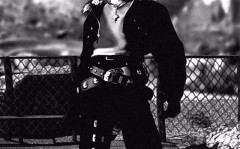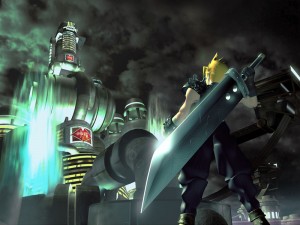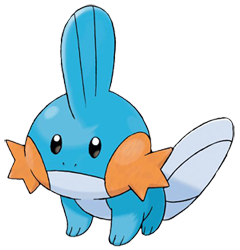My friends, we are gathered here today to pay tribute to one of the most underrated soundtracks in a video game series famous for its music. While Nobuo Uematsu’s Final Fantasy soundtracks are a gateway drug for many a budding game music fan, lost in the shuffle somewhere between “One Winged Angel” and the opera sequence from FFVI is one of the composer’s most consistent, accessible scores. I speak to you of the one, the only, Final Fantasy VIII Original Soundtrack.

Final Fantasy VIII is one of the black sheep of the main FF series, as it contains many significant and drastic alterations to the traditional formula. Sure, many of the familiar Final Fantasy tropes are there, but the act of drawing spells from enemies, coupled with the Junction system, earning gil via a salary, upgrading weapons, and other quirks—not the least of which is a sometimes nonsensical and bewildering story of romantic dreams and time compression—didn’t earn it many fans. I myself disliked it a good deal until I played it a second time, in it strictly for the gameplay and armed with a greater awareness of Junction’s nuances. During that second go-round, not only did I have more fun, but I also noticed that the music was pretty damned awesome just about all the time.
Which brings me to today’s meeting. Final Fantasy VIII’s OST is one that, for me and likewise many of you, marks the pinnacle of Nobuo’s work on the series. FFIX, though enjoyable, was largely homage, like the game itself, and Uematsu-san hasn’t composed a full Final Fantasy score since then. The sheer depth of variety on the four-disk soundtrack is astounding, and remarkably, it’s all held together quite well by variations on a few key themes, notably the epic “Liberi Fatali”, the lovely “Eyes on Me”, and the melodic “Fragments of Memory” and “Ami”. The battle themes are wonderful, with Nobuo’s signature touches all over them blended with the types of sounds that one would be hard-pressed to find in any other FF game—the techno-informed “The Man With the Machine Gun” is a fine example of this, as is “Force Your Way”, which features a driving electric organ-led intro.
Outside of the incredible battle themes, there are many other things to enjoy about FFVIII’s music. Take “Roses and Wine”, a soft, dreamy piece with the type of repetitive melody that Nobuo does so well. Or how about “The Spy”, which wouldn’t sound out of place in FFVII… save for the 70’s-style funk coursing throughout. There’s also “Slide Show Part 2”, a better and more polished take on ragtime than FFVI’s “Spinach Rag”, and the snare drum-heavy “SeeD” and “Overture”, which serve FFVIII’s military academy settings very well.
Of course, I’m sure you’ll all agree that any discussion about FFVIII’s music is incomplete without talk of “Eyes on Me”, the award-winning song famously performed by Chinese superstar Faye Wong. While the likes of “Aria di Mezzo Caraterre” and the severely overperformed “One Winged Angel” may be more favored in the eyes of certain fans, “Eyes on Me” reigns over them in my opinion. Not only can I never get sick of it, but it is also remarkably easy (and fun) to sing along to. I’ve heard that this song, unlike the rest of the OST, isn’t available on iTunes, which is why the Society recommends purchase of an authentic hard disk copy from your favorite Japanese import shop.
While we’re at it, I hope everyone in the Society has by now heard Fithos Lusec Wecos Vinosec, simply one of the finest game music arrange albums available? Many of the best FFVIII tracks are performed by an orchestra on this album, lending an even greater aural depth to what were already amazing pieces (however, as with the OST, “Eyes on Me” is noticeably absent in this album’s iTunes iteration). And let’s not forget what Nobuo’s rock band, the Black Mages, have done with FFVIII’s battle themes. Their versions of “Force Your Way”, “The Man With the Machine Gun”, “The Extreme”, and especially “Maybe I’m a Lion” come highly recommended.
Okay, so I’m a little biased; “Maybe I’m a Lion” is one of my personal faves.
 I beat Pokemon Ruby last night, after some dinnertime frustration forced me to abandon a Startopia session. I hadn’t intended to beat it, but that’s how things ended up. Pokemon Ruby has one of the toughest endgames I had ever encountered, and I’d lost track of how many times I’d attempted it, only to fail. With my trainer battle options dwindling, I used up some good-looking TMs (items that teach Pokemon specific moves), stocked up on healables, and took another crack at the challenge. Failure again. I dove back in, more mindful of certain elemental factors, and got further than I had ever been before, and I went even further than that. Thanks to some fantastic and hard-working pokemon (pictured at right with my trainer), I ended the game as the Best Trainer in Hoenn, and I watched, satisfied, as the credits rolled. My total time was 98:57, putting Pokemon Ruby in that tiny club of RPGs that I’ve spent over ninety hours on, sharing space with Dragon Quest VIII, Final Fantasy Tactics Advance, and Disgaea, aka the only RPG I’ve ever cracked the 100-hour mark on.
I beat Pokemon Ruby last night, after some dinnertime frustration forced me to abandon a Startopia session. I hadn’t intended to beat it, but that’s how things ended up. Pokemon Ruby has one of the toughest endgames I had ever encountered, and I’d lost track of how many times I’d attempted it, only to fail. With my trainer battle options dwindling, I used up some good-looking TMs (items that teach Pokemon specific moves), stocked up on healables, and took another crack at the challenge. Failure again. I dove back in, more mindful of certain elemental factors, and got further than I had ever been before, and I went even further than that. Thanks to some fantastic and hard-working pokemon (pictured at right with my trainer), I ended the game as the Best Trainer in Hoenn, and I watched, satisfied, as the credits rolled. My total time was 98:57, putting Pokemon Ruby in that tiny club of RPGs that I’ve spent over ninety hours on, sharing space with Dragon Quest VIII, Final Fantasy Tactics Advance, and Disgaea, aka the only RPG I’ve ever cracked the 100-hour mark on.
 A little bit of background first. Pokemon Ruby is the first game in the main series that I’ve ever played, though I’ve been familiar with the franchise since Red/Blue initially hit the States. Back then, I was in college and didn’t do much gaming myself. One of my classmates had gotten Pokemon Red and brought it into the studio one night. A handful of us watched her play, captivated by it. I’m not sure we knew why this was the case at the time, but clearly Nintendo was on to something, as Pokemon has since become one of the best-selling RPG series of all time. Since then, I played some rounds of Pokemon Stadium at another friend’s place, was exposed to the anime series (the only episode I clearly remember seeing all the way through was “Island of the Giant Pokemon”), and even acquired some jelly jars (though my Clefairy one broke, sadly). However, it wasn’t until last month that I started a main-series Pokemon game. It was between buying Pokemon Platinum, which had just come out, and borrowing my husband’s copy of Ruby; not sure if I would even like the series, and wanting to save some money, I went with the latter option. Now, here I am, over sixty hours in, with 80+ completed entries in my Pokedex and just one more gym badge to go, impressed by the game’s complexity and elegance.
A little bit of background first. Pokemon Ruby is the first game in the main series that I’ve ever played, though I’ve been familiar with the franchise since Red/Blue initially hit the States. Back then, I was in college and didn’t do much gaming myself. One of my classmates had gotten Pokemon Red and brought it into the studio one night. A handful of us watched her play, captivated by it. I’m not sure we knew why this was the case at the time, but clearly Nintendo was on to something, as Pokemon has since become one of the best-selling RPG series of all time. Since then, I played some rounds of Pokemon Stadium at another friend’s place, was exposed to the anime series (the only episode I clearly remember seeing all the way through was “Island of the Giant Pokemon”), and even acquired some jelly jars (though my Clefairy one broke, sadly). However, it wasn’t until last month that I started a main-series Pokemon game. It was between buying Pokemon Platinum, which had just come out, and borrowing my husband’s copy of Ruby; not sure if I would even like the series, and wanting to save some money, I went with the latter option. Now, here I am, over sixty hours in, with 80+ completed entries in my Pokedex and just one more gym badge to go, impressed by the game’s complexity and elegance.